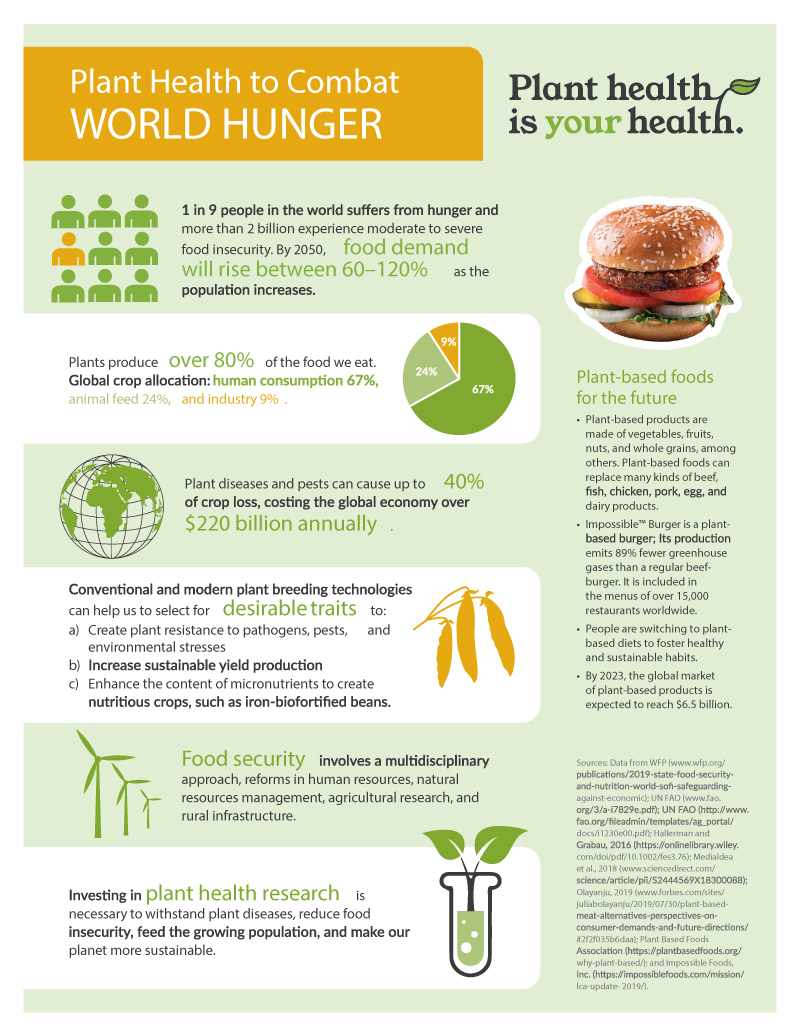Plant Health to Combat World Hunger
Plants produce over 80% of the food we eat. Protecting the health of our plants ensures a sustainable future for us and for future generations.

Today, one in nine people worldwide suffers from hunger or malnutrition. And by 2050, worldwide food demands are projected to increase 60-120%. Meanwhile, global climate change means increasingly erratic and frequently hostile environments in which to grow crops. Excessive heat, drought, and flooding take a toll on crop production. Plant pests and diseases also threaten our crops, currently causing more than $220 billion in annual losses. That’s about a 40% reduction in agricultural productivity on a global scale!
Solving challenges to plant health, whether caused by the environment, pests, or diseases, can have profound impacts on global food production and security. Discovering sustainable plant health solutions requires multidisciplinary approaches. Developments in human resources, natural resources management, agricultural research, and rural infrastructure are necessary for food security. Collaboration across the food chain, with the government, researchers, industry, farmers, and consumers, can solve issues with crop production.
Globally, professionals are working toward science-based solutions to make crop plants more resilient to a changing environment, and better able to defend themselves against pests and diseases. Plant breeders use traditional methodologies to produce new crop varieties that yield better even during challenging weather events. Plant pathologists study pathogen biology and the spread of plant diseases, providing information needed for disease management with minimal chemical inputs. Soil microbiologists are harnessing the potential of microbes associated with plant roots to enhance crop disease resistance, and reduce the need for chemical fertilizers. Plant molecular biologists use gene editing, and other modern genomics approaches to understand and enhance plant function. Partnerships between government, academic researchers, and industry are crucial to bringing science-based solutions to farmers, homeowners, and consumers.
Together, we can achieve plant health. Together, we can grow more food with fewer resources. Together, we can feed a hungry planet. Plant health is YOUR health.
View Spanish Version
View Portuguese Version
